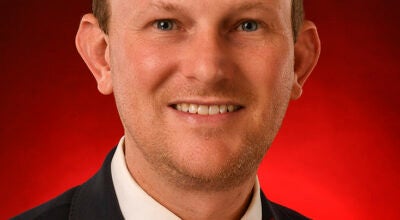Looking at the world a little differently
Published 11:00 pm Wednesday, November 27, 2013
In the famous Danish philosopher Søren Kierkegaard’s seminal work, Either/Or: A Fragment of Life, he leaves the reader with this thought: “Laugh at the world’s foolishness, you will regret it; weep over it, you will regret that too; laugh at the world’s foolishness or weep over it, you will regret it either way; laugh at the world’s foolishness or weep over it, you will regret both.”
This quote struck me as a novel way to look at the world. When you look at the current state of the world, it is sometimes hard not to weep at the current state of the world.
Despite America’s best efforts, the Middle East remains the world’s most volatile region, poverty remains a worldwide problem in Asia and Africa and natural disasters like Typhoon Haiyan cause untold amounts of devastation to the developed world.
On the domestic front, America is faced with numerous social challenges. Citizens of the United States, despite the claims of the Affordable Care Act, still lack access to quality healthcare. Sixteen percent of people in the world’s richest country are still living in poverty. America has become divided between conservatives and liberals, and, every day, the gulf between the two sides widens.
Perhaps we would be wise to heed Kierkegaard’s words. No matter what decisions we make as a nation, we always seem to regret it.
Call me an optimist, but, when I look at recent events in the world, I see a reason to hope that the worst is behind us.
Recently, the United States and Iran signed an agreement to halt Iran’s nuclear weapons program. In exchange for easing economic sanctions on Iran, the United States has been granted unprecedented access to the country’s nuclear enrichment facilities. Israel’s greatest fear is a nuclear Iran, and, by Iran shutting down its nuclear program, tensions in the Middle East should be eased.
In response to the destruction of Typhoon Haiyan, the United States’ government has already donated more than $37 million dollars in aid. In addition, the United States military has mobilized to help the Philippine government better serve its citizens.
While the Affordable Care Act has failed so far to provide affordable healthcare to all American citizens, it is a move in the right direction. Every citizen of a first world nation should have access to healthcare.
It seems as if Republicans and Democrats can never come together, but, in October, both sides came to agreement to raise the debt ceiling. As the public becomes more upset with the performance of the government, we can hope the two parties will unite in a spirit of bipartisanship.
Looking back out Kierkegaard’s quote, I reject his position. While it may be true that, if we laugh at or weep over the foolishness of the world, we will regret it, I think, with apologies to Kierkegaard, we can occupy a third position.
If we all do what we can to combat foolishness in the world, we might just leave the world a better place than we found it.


